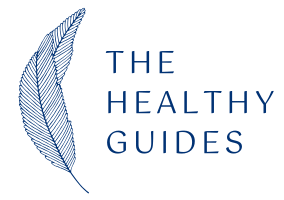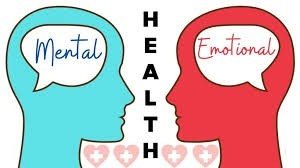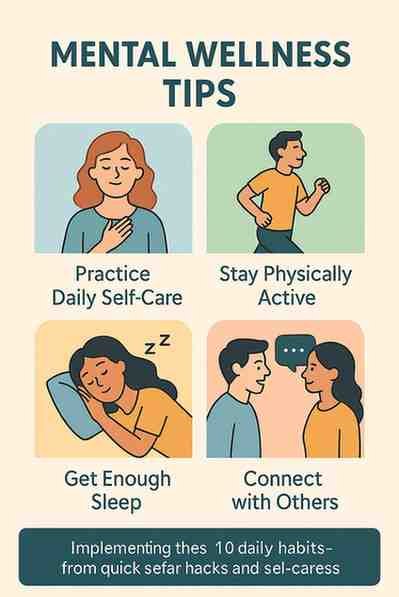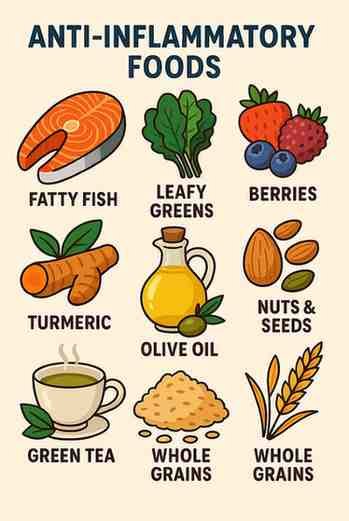Understanding the Key Differences and Connections
Introduction
When people talk about wellness, two terms often overlap: mental health and emotional health. But are they really the same? Understanding mental vs emotional health is essential for building resilience, managing stress, and creating balance in daily life. While they are closely connected, they address different sides of well-being—mental health focuses on thinking and cognition, while emotional health deals with feelings and expression.
This article explores mental vs emotional well-being comparison in depth. We’ll define both terms, highlight their differences, explain their importance, explore their impact in daily life, and share practical self-care strategies.
Define Mental Health vs Emotional Health
What is Mental Health?
According to the World Health Organization, mental health is a state of well-being in which individuals realize their potential, can cope with normal stresses of life, can work productively, and contribute to their community.
In simple terms, mental health relates to your thinking patterns, cognitive functioning, and psychological stability. It affects:
- How you handle stress.
- How you make decisions.
- How you interact with others.
Examples:
- Being able to concentrate during an exam.
- Thinking clearly at work despite stress.
- Staying rational during conflict.
What is Emotional Health in Psychology?
Emotional health meaning and examples highlight a different aspect: the ability to understand, manage, and express emotions effectively. In psychology, emotional health is tied to emotional regulation, self-awareness, and empathy.
Examples:
- Expressing sadness by crying rather than suppressing it.
- Staying calm instead of lashing out in anger.
- Showing empathy toward a friend in pain.
So while mental health definition vs emotional health highlights thinking vs feeling, both overlap in practice.
Emotional Health Versus Mental Health Explained
Here’s a breakdown of mental health vs emotional health differences:
- Mental health → How your brain processes, thinks, and makes decisions.
- Emotional health → How your heart feels, reacts, and expresses emotions.
How does mental health differ from emotional health?
- Someone with poor mental health may struggle with disorganized thoughts.
- Someone with poor emotional health may struggle to manage anger, sadness, or joy.
Both are essential pillars of overall wellness.
Mental Health vs Emotional Health Differences
Let’s look at them side by side:
| Aspect | Mental Health | Emotional Health |
|---|---|---|
| Focus | Cognitive functioning, thought clarity | Emotional balance, awareness, regulation |
| Scope | Broad – covers psychology, thinking, behavior | Narrow – focused on emotions |
| Challenges | Anxiety, depression, bipolar disorder, schizophrenia | Anger issues, emotional numbness, chronic irritability |
| Care | Therapy, medication, psychiatric treatment | Self-regulation, journaling, mindfulness |
This table shows that emotional health versus mental health explained is about separating thoughts from feelings, even though they interact constantly.
Understanding Emotional and Mental Wellness
Many people ask: Does emotional health impact mental health? The answer is yes.
- Poor emotional regulation (bottling up anger, grief, or sadness) can lead to mental illness.
- Poor mental health (such as anxiety or depression) can disrupt emotions.
For example:
- Anxiety: mental or emotional health issue? Anxiety starts in the mind (mental), but also affects feelings like fear or irritability (emotional).
- Depression and emotional health connection: Depression clouds thinking (mental) but also drains joy, hope, and motivation (emotional).
This interplay shows why balancing mental and emotional wellness is so important.
Why is Emotional Health Important?
Many people prioritize mental health but overlook emotional health. Yet emotional health is crucial because:
- It helps build stronger relationships.
- It reduces stress.
- It allows you to express yourself authentically.
- It improves empathy and connection with others.
The role of emotional stability in mental health is key. Imagine someone who is mentally stable but emotionally unstable—they may think clearly but still sabotage relationships with anger outbursts or inability to show love. That imbalance eventually impacts mental wellness too.
Signs of Unhealthy Emotional vs Mental State
Recognizing early signs is crucial.
Unhealthy Mental Health Signs:
- Persistent sadness or hopelessness.
- Inability to focus or make decisions.
- Disorganized or racing thoughts.
Unhealthy Emotional Health Signs:
- Frequent outbursts of anger.
- Emotional numbness (not feeling joy, sadness, or love).
- Inability to express emotions verbally.
These distinctions highlight emotional health disorders vs mental illnesses, showing how each presents differently.
Tips to Improve Emotional Health
So, how can you strengthen your emotions? Here are some exercises for better emotional health:
- Journaling: Write about your feelings daily to increase awareness.
- Mindfulness meditation: Observe emotions without judgment.
- Self-expression: Use art, music, or writing to express emotions.
- Talking it out: Share feelings with a trusted friend or therapist.
These daily habits for emotional stability make a big difference over time.
Mental and Emotional Self-Care Strategies
Mental and emotional health require a holistic approach. Here are some practices for both:
- Therapy and counseling (supports mental clarity and emotional regulation).
- Sleep hygiene (rest supports both cognitive and emotional balance).
- Healthy nutrition and exercise (improves brain health and mood).
- Support systems (friends and family nurture emotional strength).
These mental and emotional self-care strategies ensure you’re taking care of both sides of wellness.
Workplace Perspective: Emotional Health in the Workplace vs Mental Health
Work environments often highlight the difference between the two.
- Emotional health in the workplace → Impacts teamwork, empathy, and conflict resolution. Employees with strong emotional health build better relationships and manage stress gracefully.
- Mental health in the workplace → Affects focus, productivity, and problem-solving. Employees with strong mental health are more resilient and efficient.
When either declines, employees face burnout: mental or emotional exhaustion? In reality, burnout is often both—mental fatigue from workload and emotional drain from stress.
Relationships and Social Well-Being
Relationships directly affect both areas:
- How relationships affect emotional and mental health:
- Toxic relationships → damage self-esteem (emotional) and increase anxiety/depression (mental).
- Healthy relationships → boost joy, resilience, and stability.
- Managing stress: mental vs emotional strategies:
- Mental strategies: problem-solving, time management.
- Emotional strategies: empathy, calm communication, taking breaks.
This shows how deeply our social world influences mental vs emotional well-being comparison.
Conclusion
To wrap up, here’s the bottom line:
- Mental health = thoughts, cognition, resilience.
- Emotional health = feelings, expression, empathy.
Both overlap, and one impacts the other. Strong mental health without emotional stability—or vice versa—leaves us incomplete.
Investing in both areas is the real path to understanding emotional and mental wellness. From daily self-care habits to workplace support and relationship balance, the goal is to strengthen both sides equally.
So, the next time someone asks: Is emotional health the same as mental health? You can confidently say: No—they are different, but they’re partners in creating a healthier, happier life.
❓FAQ’s
1. Fundamental Differences
Q: What is the difference between mental health and emotional health?
A: Mental health refers to cognitive functions like thinking, decision-making, and psychological conditions (e.g., depression, anxiety). Emotional health focuses on managing emotions, resilience, and expressing feelings in a balanced way.
Q: Is emotional health part of mental health?
A: Yes, emotional health is a subset of mental health. While mental health covers overall psychological well-being, emotional health specifically deals with emotional regulation and awareness.
2. Impact & Importance
Q: Why is emotional health important for mental well-being?
A: Poor emotional health (e.g., chronic stress, suppressed emotions) can lead to mental health issues like anxiety or depression. Managing emotions effectively supports a healthier mind.
Q: Can you have good mental health but poor emotional health?
A: Yes. Someone may function well cognitively (e.g., no diagnosed disorders) but struggle with emotional outbursts, loneliness, or stress—indicating imbalanced emotional health.
3. Signs & Symptoms
Q: What are signs of poor emotional health?
A: Frequent mood swings, difficulty coping with stress, emotional numbness, or overreacting to small issues can indicate poor emotional health.
Q: How do I know if my mental health is declining?
A: Warning signs include persistent sadness, excessive worry, social withdrawal, changes in sleep/appetite, and trouble concentrating.
4. Improvement & Self-Care
Q: How can I improve my emotional health?
A: Practice mindfulness, journaling, healthy expression of feelings, and building strong relationships. Therapy or emotional intelligence exercises also help.
Q: What are the best self-care practices for mental health?
A: Regular exercise, therapy, adequate sleep, setting boundaries, and engaging in hobbies support mental well-being.
5. Disorders & Professional Help
Q: Is anxiety a mental or emotional health issue?
A: Anxiety is a mental health disorder (classified in the DSM-5) but directly impacts emotional health (e.g., fear, overwhelm). Treatment often addresses both.
Q: When should I seek professional help?
A: If symptoms (e.g., prolonged sadness, panic attacks, or emotional instability) interfere with daily life, consult a therapist or psychiatrist.
6. Workplace & Relationships
Q: How does emotional health affect relationships?
A: Poor emotional health can lead to conflicts, poor communication, or dependency. Healthy emotional habits foster deeper connections.
Q: Can workplace stress damage both mental and emotional health?
A: Yes. Chronic stress harms mental health (burnout, depression) and emotional health (irritability, emotional exhaustion).
7. Debates & Myths
Q: Which is more important: mental or emotional health?
A: Both are interconnected. Mental health affects how you think; emotional health affects how you feel. Prioritizing both is key to holistic well-being.
Q: Does meditation help mental or emotional health more?
A: Meditation benefits both—it reduces stress (mental health) and enhances emotional regulation (emotional health).
Your brain needs fuel too—learn how the right diet can boost your mood and energy in our healthy eating guide.”
Looking for more ways to stay energised and motivated? Head over to our sports blog for inspiration and active lifestyle tips.”







